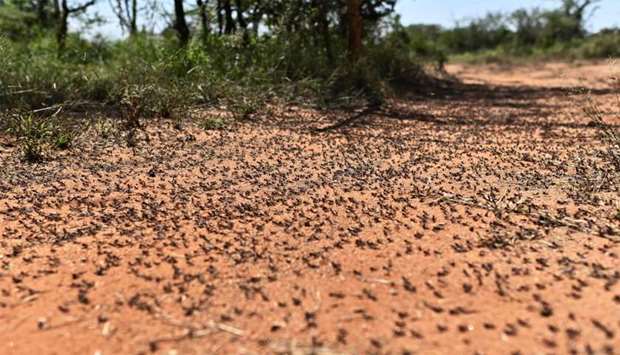Along with climate shocks, conflict and acute food insecurity, the East Africa region now faces a hunger threat from desert locusts, top UN relief officials warned, saying action now, will avert a major food crisis later.
The locust upsurge is ‘a graphic and shocking reminder’ of the region's vulnerability, said a joint statement by Director-General of the Food and Agriculture Organization (FAO), UN Emergency Relief Coordinator and Executive Director of the World Food Programme (WFP).
‘This is a scourge of biblical proportions’, the statement read. ‘Yet as ancient as this scourge is, its scale today is unprecedented in modern times’.
Although the UN agriculture agency sounded the alarm in January, calling for financial assistance to control the outbreak, resources have been too slow in coming.
Since FAO launched its first appeal to help what was at the time three affected countries, the locust swarms have moved rapidly across vast distances and as of Feb. 12, have been sighted in Djibouti, Eritrea, South Sudan, Uganda and Tanzania.
As the locusts continue their invasion throughout eastern Africa, and more details emerge on the scale of need in affected areas, the cost of action has shot up to $138 million to support Governments in controlling the ravaging pests, especially over the next four months.
The money would fund activities to combat the locusts before new swarms emerge, provide help for people whose crops or pastures are already affected and protect families and their livelihoods.
In just a few weeks, as crops begin to sprout, the next generation of locusts will take wing in a renewed frenzy of destructive swarm activity, threatening to devastate East Africas most important crop of the year. Today, mature swarms are laying eggs within vast areas of Ethiopia, Kenya and Somalia, many of which are already hatching.
‘Acting now to avert a food crisis is a more humane, effective and cost-efficient approach than responding to the aftermath of disaster’, the statement underscored.
World Food Programme WFP has estimated the cost of responding to the impact of locusts on food security alone to be at least 15 times higher than the cost of preventing the spread now. (QNA)

